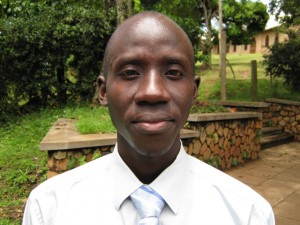By Zacharia Tiberindwa
Recently I decided to take some time off the dusty streets of Kampala and went back to the west and not in that direction of Rwakitura like so many of you are beginning to suspect. One thing that annoys me in this country is that every time a person talks about the west in Uganda most of you, Ugandans, your silly minds quickly run to that direction that leads to Rwakitura as if that is the only direction that leads to the west in Uganda.
Now the west I am talking about in this case is the true western part of this country. I had gone to visit that small town called Hoima: it is one of the towns that are in the oil region of Uganda or the region that I prefer to refer to as the only one that flows with milk and oil.
It is my hometown and obviously I had gone back to that damned place just to visit my relatives. So, I also took that opportunity to go as far as my home village. That village is called Kikara and it is in Kyabigambire sub-county. All that I want you to know about Kikara is that it is one of the most remote villages in this country but being the clever fool that I am I went there just to have fun and ensured that I observed just enough aspects about that village such that I would share with you some of the interesting aspects about our village.
However, before I proceed I beg that you do not ask me how many years I had taken without visiting that village because that is none of your business and I do expect you not to poke your crooked nose in business that not only does not concern you but that I also would suggest that you ignore.
Okay back to business. First and foremost, Kikara village is the only village I have been to in this country where one has to cross a forested valley before you can get to the village. This valley is the one that physically separates our village from civilization and crossing through that valley to our village is akin to crossing to an entirely different world on this planet. However thank God that recently I traveled to that world and I am back to tell you the story and now lets get to what goes on in that village.
As soon as I got in the village I was seriously astonished by the number of people that were always climbing trees looking for mobile telephone network. Fortunately, being one of those fellows that are on the only network that is everywhere you go and that is MTN, at least I was saved the bother of having to climb those trees. But I have to confess that sometimes I would have to climb anthills looking for that so called MTN network.
Then, I was also astonished when the next day I had to go to the garden and spend the whole day there. The reason was not that all that time we were in that garden working but it was something different. In our village when a person plants crops he does not only plant and go back home to snore waiting to reap the fruits of his or her labor. In Kikara and I suppose in many Ugandan villages, a farmer has to plant his/her crops, then keep in that garden or else the baboons help such a fool harvest the crops before they mature. So farmers keep in the gardens shouting and yelling at baboons to ensure they protect their agricultural crops.
Let me tell you when you see those farmers shouting at the baboons you could easily mistake them for mad fellows. Whereas people Kampala and towns spend days speaking with or shouting at people , that side people spend entire days shouting at baboons. Now that is Kikara. By the way, you can forget everything about Kikara but remember that it is not anywhere else on this planet but in this lovely Uganda.
And to sum it all up, I would have told you more about Kikara but that would be encouraging you not to think. So the little stuff that I have told you it is just to provoke you to think of the untold part of the bigger story now that I have told you just part of the story. For example I will not tell you what you go through in Kikara to get mobile phone airtime, or how far you have to go to charge your phone. How do you think people here answer nature’s calls, or …ahhhh.
Keep following Zak as he delves into different issues, events and ideas concerning Ugandans with his youthful satire.
zak@weinformers.net


2 Responses to "Kikara highlights the plight of a typical Ugandan village"